
臺灣非營利專業書評媒體。Openbook編輯部將提供原生報導,文化觀察,人物採訪與國內外重大出版消息。 https://linktr.ee/openbooktaiwan
How were the literary and artistic youths of the 1990s linked together? : Interview with writer Wu Mingyi
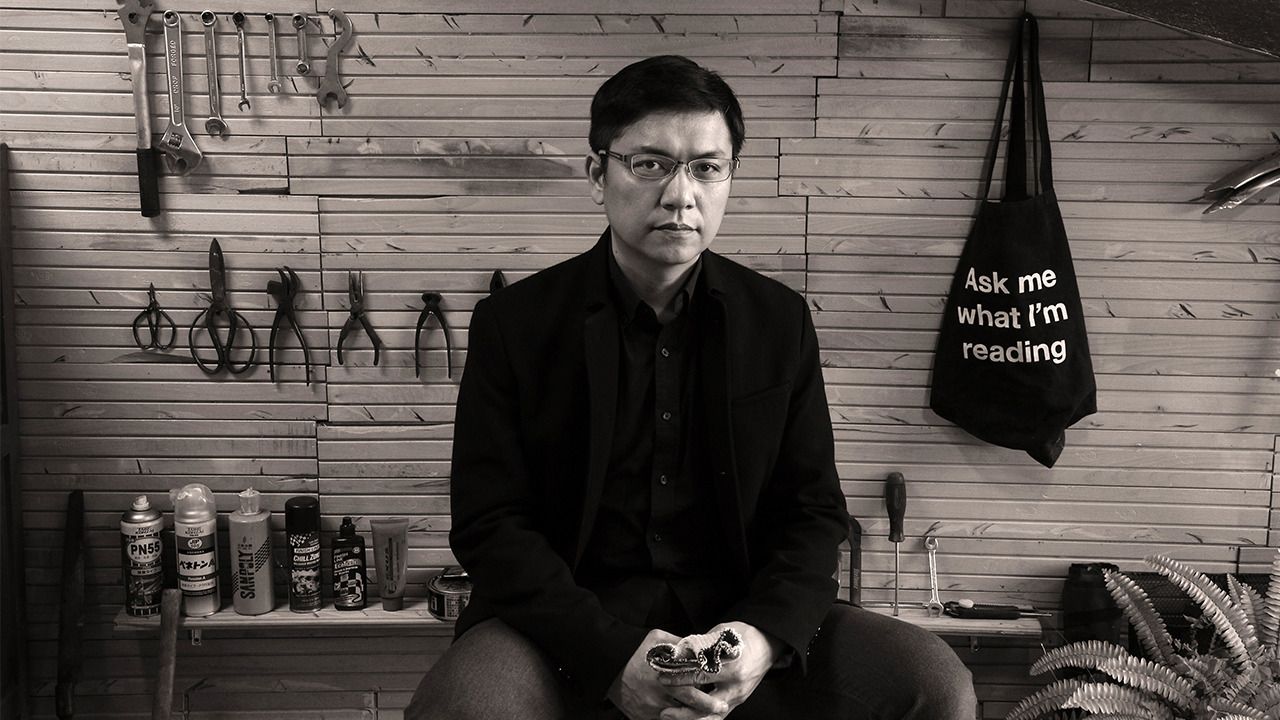
- Question: Cai Yicheng (Ph.D. student at the National Taiwan University Institute of Taiwanese Literature)
- Response: Wu Mingyi (writer, professor of Chinese Department of Donghua University)
Q: In 1992, you won the "United Literary Newcomer Award" for "The Last Shielek". The meaning of this novel is very special. In the external sense, it has won a very important literary award for newcomers to literature; in the internal sense, it shows that Aboriginal issues are very early in your work. Were you influenced by any aboriginal issues and writers back then? What prompted you to write this work? In the end, why did you take this to vote for the prize? (Is it based on some kind of winning strategy? Or is it just a simple submission?)
A: "The Last Cyelek" can be regarded as the first work in my life. Although I myself have been exposed to literature since high school, I was still immature at that time, and it was mostly a technical imitation. When I was in college, I went to the Jiuzu Cultural Village and saw the aborigines performing there. I also chatted with each other for a while, and I sighed about the situation of the aborigines. I wrote this novel later.
At that time, there were not many writers writing about Aboriginal issues, and I myself had little knowledge of other Aboriginal works. There are some aboriginal words in the novel, such as "Shielek" (the bird used by the Atayal people for divination), "Maraho" (the name of the Atayal leader), "Otuf" (the ancestor of the Atayal people) ), which were not readily available at the time.
What impressed me was that after I finished writing this novel, I read it to my classmates in the Department of Biography. As a result, a girl wondered why there were so many foreign names in the novel. This actually shows that in our era, we didn't know much about the culture related to the aboriginal people.
When I voted for the "United Literary Newcomer Award" that year, it was actually just a pure submission mentality. I don't have any friends who love literature, and I don't know any literature awards to vote for. I know this award mainly because I participated in the "National Touring Art Camp". At this literary camp organized by the "United Literature" magazine, it was only because of the promotion of the camp that we learned of the existence of this literary award.
Q: In addition to participating in the "National Tour Art Camp", did you also participate in the more local "Salt Zone Art Camp"? What is your impression of the "National Touring Art Camp"?
A: I have only participated in one literary and art camp in my life, that is, the "National Touring Art and Culture Camp", and I have never been in contact with the rest.
When I participated in this art camp, it seemed that I only attended a few classes. Later, I felt a little bored, so I left halfway. More impressive is the class of Dong Nian and Lvqiang. These two writers were both kanban figures in "United Literature" back then, and they were also quite influential in the literary and art camp, and their books could be seen everywhere.
Being strong is kind to me. At that time, in the art camp, students would hand in their own works to the tutors of each group. Lvqiang has given some feedback on my works, and will also encourage us to contribute more. But there was no contact after that.
As for Dong Nian, I have more ties with him. At the "United Literary New Talent Award" that year, he was the judge who voted for me. Around the end of the 1990s, when e-mail started, I also had several correspondence with him, and then I went out for coffee once. As far as the connotation of the works is concerned, in my experience of reading works when I was young, Dong Nian's novels also have a very unique charm.
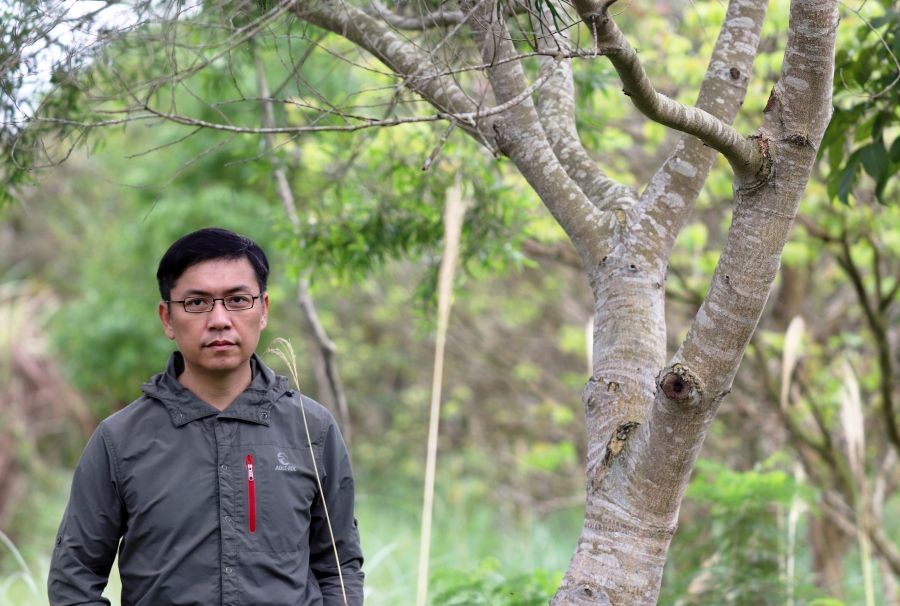
Q: The "United Literary New Talent Award" has always been known as a ticket to the literary world. According to legend, as long as the new creators win this award, the follow-up submission and publication will be smooth. You won the award in 1992, but after a period of silence, you were nowhere to be seen in the "United Literature" magazine, and it seems that you did not get the award you deserve. During this period, did any publishing house inquire about publishing matters, or did any magazines or newspapers take the initiative to invite articles for columns? Or if you volunteered to submit a paper to a newspaper or magazine but it was rejected? If there is a situation where the publication is not smooth, did you think about the specific reasons and how to deal with it?
A: When I was submitting the manuscript, I had no idea about the status of the "United Literary New Talent Award". As I said before, I am not very clear about what literary awards are on the table. And in my personal experience, the literary prize has brought me no additional benefit. Later, I resubmitted to the "United Literature" magazine, but it was not used at all.
I myself would later think that winning the award is also an opportunity to meet the editors and seniors at the awards ceremony, and let them remember you. But frankly, I can't recall the awards ceremony at all, and I'm not even sure if I actually went there. Even if there was, I would definitely finish receiving the award silently, without talking to anyone, I went home by myself.
After winning the award, I fell into a long blank period. At that time, it mainly invested in the big media, but did not get any response. At that time, a friend of mine suggested that I try to contribute to a local newspaper, it would be easier to get published. But I hope that my work can be seen by more people, so I still focus on the big newspapers.
Before this, I imagined that manuscripts submitted to the publishing house would be rejected. But the reality is that I spent some money photocopying and mailing it in the hope that the work would be seen, but I didn't even receive a rejection letter. You can't help but wonder if your manuscript was actually received. In times of frustration like this, you go to see what everyone is writing, compare it to yourself, and then fall into self-doubt and become more and more distorted mentally.
Q: Looking at your first collection of novels, "Today's Public Holiday", you will find that several of your works were published in "Taiwan New Literature", which can be regarded as breaking the predicament of nowhere to publish. "Taiwan New Literature" was founded in 1995, and you published "Old Man" in the third issue. In fact, you have been in contact with this magazine very early. Where did you hear about this magazine? What kind of thoughts did you have when you submitted the article? Know the local leanings behind this magazine?
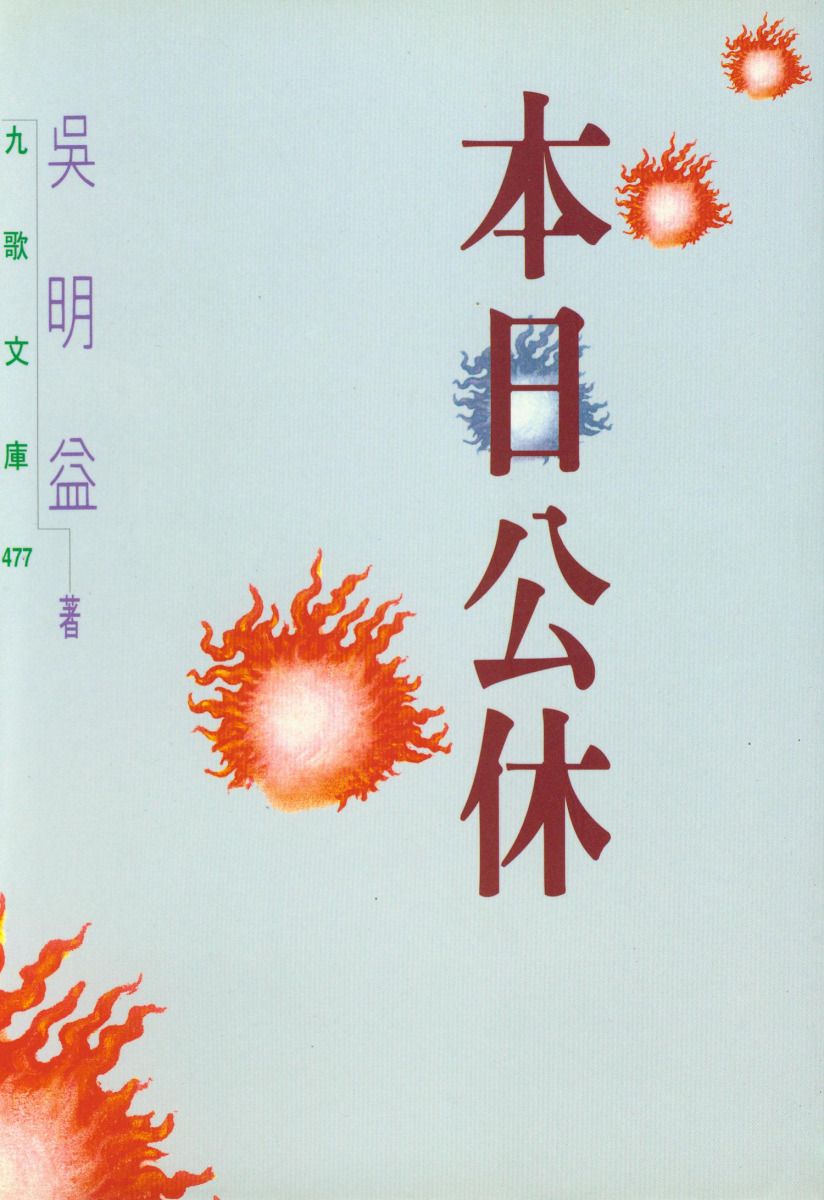
A: I came into contact with this magazine during the two years of my military service. I should have seen this magazine in a bookstore. When I submitted the manuscript, I didn't know what kind of magazine "Taiwan New Literature" was. I only knew that the editor-in-chief was Song Zelai.
In order to learn to write, I read a lot of literature in high school, both foreign and domestic as much as possible. At that time, I have read well-known domestic writers, such as Bai Xianyong, Chen Yingzhen, Huang Chunming, Zhang Dachun, etc., including Song Zelai. Song Zelai is relatively young here, but he has the courage to express his opinions, and is particularly impressed by him. Because of this, when I saw that it was edited by him, I wanted to say vote and vote.
Q: The editor-in-chief of "Taiwan New Literature" is Song Zelai, whose predecessor "Taiwan New Culture" and later "Taiwan e Literature and Art" also have his shadow, and he is the soul of this series of local publications. Before submitting to the publication, which novel of Song Zelai was more impressed by? Do you know his personal local political philosophy?
A: When I was in high school, I read his book "Fighting the Niuyan Village" and felt very moved. His writing skills are very good, and the stories he tells have a certain continuity. Through a series of stories of small people, he systematically explores rural issues. He is very good at depicting the exploitation of middlemen and the ugliness of political black money. In addition, he also has a unique charm in writing small love and love, and has a romantic mood, which I quite like.
Before submitting the manuscript, I did not know his political philosophy. It was not until after I submitted my work that he took the initiative to call and chat with me about the work. Only in the subsequent chat did he know his very local political philosophy. However, I have nothing against it. One reason was that at that time, this platform allowed me to publish my works, and at the same time, I could get paid. Another reason is that at the beginning of each issue of the magazine, Song Zelai will comment on each published work in great detail, and treat everyone's creation with great care.
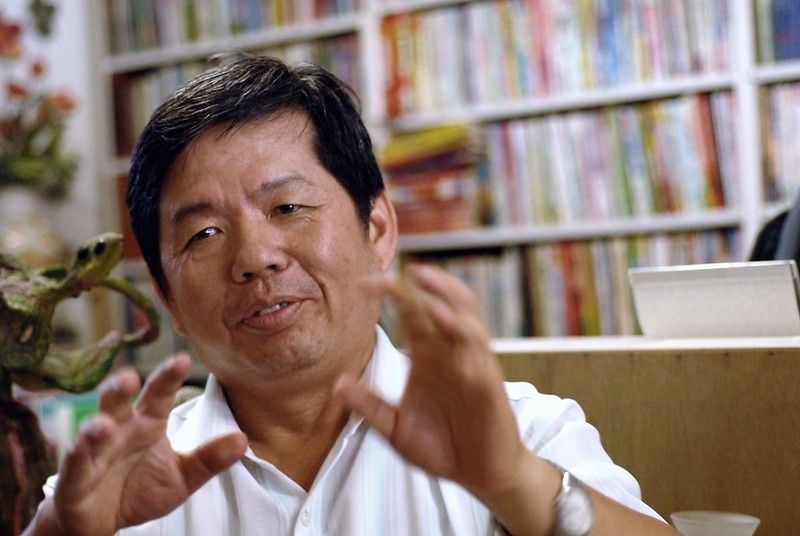
Q: In "Taiwan New Literature", Song Zelai attaches great importance to the cultivation of new writers. The editor's introduction to each issue of the magazine introduces dozens of pages of works at every turn, which is really amazing. In addition, magazine editors take the initiative to call contributors to communicate with contributors on their works, which is also difficult for writers of my generation to imagine. What do you think of Song Zelai and Taiwan New Literature's care for new writers? And in the exchange of literary and artistic works, what are you discussing specifically? Has Song Zelai's guidance influenced your work?
A: At that time, Song Zelai took the initiative to call and I was actually very moved. My life in the military was dreary, I had trouble submitting articles before, and suddenly a great writer called me, and after a long, expensive long-distance phone call, I felt like I had found some kind of belonging. In addition to talking about the work, he would also ask me what I would do in the future. He is a very enthusiastic person.
When he called me for the first time, he praised my works as very good, and asked me to give them to him in the future, and he would post them no matter how many words there were. In terms of literary skills, he reminded me to write scenes more extravagantly, to describe the environment and space in detail, and he thought I had such ability. And I do like to write scenery, but this way of writing was not popular at the time, and I never dared to write before. Song Zelai's encouragement gave me a lot of confidence.
I have also left some relevant information about his discussion of literature here. He would post on our community's online family, or send an email, and write down what he thinks every day. Some are political commentary, some are cultural observations, and some are literary discussions. For example, he discussed Szymborska's work with Hu Changsong. He spends a long time combing the background of Simboska, and also attaches his own Taiwanese translation of poems. I admire his energy and enthusiasm.
In my mind, I've only met him four times. The first time was the award ceremony of the "Wang Shixun Literary Award". He was equally enthusiastic when he gave a speech on the stage, but when he was off the stage there was a kind of restraint of his predecessors, but he didn't speak much. The second time was on the occasion of his speech, I asked him about writing in Taiwanese, and he just wanted me to write in a language that I was comfortable with. He has always used encouragement instead of guidance, and will not use political ideas to force others to write. For example, when I write about the military and the Chinese shopping mall, he said that it would be good to continue writing. The third time, many years later, the two of us served as judges for the Campus Literature Award. The fourth time was later, when he published the series of "Thunderbolt" at Avant-Garde Publishing House, and held a new book dialogue with him.
After I submitted articles to "Taiwan New Literature" several times, Song Zelai asked me to organize my own works. He helped to submit the articles to the publishing house, and "Today's Public Holiday" was born. I am very grateful for his promotion and admire his love and fascination with literature and art.
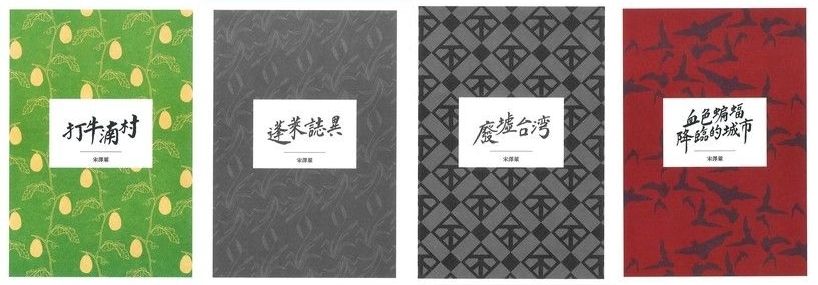
Q: The "Wang Shixun Literary Newcomer Award" is similar to the "Wu Zhuoliu Literary Award". It takes the works published in the journal within one year as the selection object, and comprehensively considers the number of published articles and creative potential of the creator. It is not a list of two major newspapers. This anonymous essay is a very unique literary award in the local school. You are the winner of the first "Wang Shixun Literary Award", and the judges of the novel group are Song Zelai and Dong Nian. Since the judging meeting is not published in the magazine, wondering if you know why you won the award? What do you think of this literary award?
A: I often criticize the system of the Taiwan Literature Award in my class, and I will ask students to look at the rules of literature awards in various countries. There are several literary award systems in Japan. One is the literary award of a specific magazine, which is for longer novels, such as the "Group Portrait Literary Newcomer Award". The other is that you publish your work first, and then a jury selects the winner, which is similar to the Akutagawa Award or Naoki Award. The "Wang Shixun Literary Award" also has its own logic. It doesn't care whether you want to participate in this literary award competition, it will take the initiative to include works published in magazines in the selection category.
I don't know why I won the award that year. They called and told me that I had won the prize, and I was there to collect the prize.
Q: "Taiwan New Literature" has been published for nearly 5 years (1995~2000), and each issue has special topics (such as: "Second Wave Local Literature", "Women's Self-Writing", "Fourth Generation Long-form Novel from the Province" Novels" and "Memorial of the April 6th Incident"), and each issue includes introductions by international famous writers and interviews by Taiwanese writers. Is there anything that impressed you deeply and even affected you? What do you think of the local magazines of the same period such as "Literature Taiwan" and "Taiwan Literature and Art"?
A: I am very impressed with "International Famous Artists". I'm not sure on which occasion Song Zelai said it, but he stressed that Taiwanese writers must have an international outlook. He mentioned the writers during the Japanese occupation period and believed that the writers at that time not only received the traditions of the May Fourth Movement in China, but also various Western literatures imported from Japan. It is still very important for our contemporary writers to keep abreast of the dynamics of world literature.
At that time, I knew about two local magazines, "Literature Taiwan" and "Taiwan Literature and Art". When I was a graduate student, in the "Sociology of Literature" opened by Mr. Li Ruiteng, the class report I gave was to compare the changes of "Taiwan Literature and Art" when Li Qiao was the editor-in-chief, and to classify the articles of each issue of the two magazines. However, none of my manuscripts were selected for these two journals.
Q: Your early novels were mainly based on life experiences, such as campus and military. But until 1998, you started to write ecological essays, and in 2000, you published "Missing Butterfly" and it was widely praised. Ecological writing became an alternative way of breaking out. In the 16th issue of "Taiwan New Literature", "Birthday Gift" was published, which was not included in the "Misery Butterfly". What do you think of the place of "Missing Butterfly" in the history of personal creation?
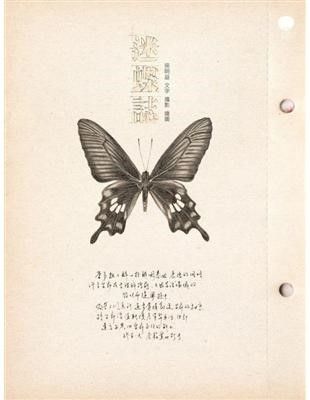
A: The birth of the book "Lost Butterfly" is ingenious. If you pay attention to his book series, it actually belongs to the life category, not the literature category. At that time, Chen Jinghui, the sister of my college student, was working as an editor in the wheat field, looking for books to publish. Coincidentally, I was writing advertising reviews and music reviews at the time, and the accumulated amount of manuscripts was enough to publish a book. It was originally intended to make these comments, but because the comments had to match the images of advertisements and the cover of music albums, it was too common to be unwilling to authorize or the licensing fee was too expensive, so this plan had to be abandoned. At that time, I had a few other ecological essays at hand, and the editor felt that they could continue to develop after reading it, and "Misery Butterfly" was born under this opportunity.
After writing this book, because I was unknown at the time, I needed to find some well-known writers to recommend. At that time, I had no friendship with Chen Yufeng and Liu Kexiang. I just had the mentality of trying it out. I asked the editor to send the manuscript to them, hoping to get a recommendation. Later, Liu Kexiang called me and said that he liked my work very much and that he could help publish the content of the book in the China Times edited by him. I am also very grateful to him. At that time, when the chapters in this book were published in other newspapers, it was not me who contributed, but Liu Kexiang who helped to contribute.
Q: "Taiwan New Literature" ended its publication in 2000, and was revised into "Taiwan e Literature and Art" the following year, which is a colleague's publication of "Taiwan New Local Society". You became a member of "Taiwan New Local Society" and was interviewed by Hu Changsong in the third issue. Have you participated in any activities in this society? Which member do you have a better relationship with? Will the members publish their works in your exclusive online community and teach each other?
A: I am a marginal person in the club. I have never participated in any activities and rarely speak. I have the impression that some people will publish their works on the online community, but most of the responses are Song Zelai. For activities-related parts, it may be better to ask Hu Changsong.
The interview was conducted by Hu Changsong, on the one hand because he was deeply involved in the affairs of the magazine, and on the other hand, Song Zelai hoped that our generation of writers could get to know each other. Because I have contacted and talked with Hu Changsong, I have a good relationship. At that time, he had the ambition to write a lot of Taiwanese novels, and in the future he would really have the will to move towards this goal and become a very important local writer of the Mesozoic generation.
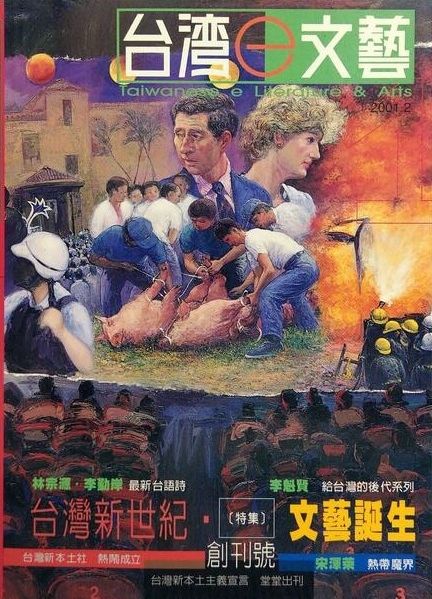
Q: The covers of "Taiwan New Literature" and "Taiwan e Literature and Art" are all Taiwanese local paintings, which have a unique charm. You are also on the art editorial board of "Taiwan e Literature", and you can see your illustrations on the magazine. What do you think of the art style of the two magazines?
A: The part of the art editorial committee is that Song Zelai thought that I had art expertise, and after asking my opinion, he put it in. But in fact, I probably didn't perform art tasks at all, I just gave illustrations.
It's interesting that every issue of the magazine uses a painting by a local artist as the cover. In the early years, the "United Literature" magazine also used paintings as the cover. Song Zelai mentioned that if literary magazines are too ugly, no one would want to buy them. However, I think Song Zelai also consciously fought against the wave of commercialization and popularization at that time.
Q: In 2001, you won the Lianhe Pao Literary Award for "Tiger Lord", which is a very representative literary award in Taiwan. After that, in 2003, you published your second novel "Tiger Lord". In fact, it has been nearly 10 years since 1992, which also obtained the landmark "The Last Shirek", and he has undergone a lot of changes in writing. What do you think of the creation of novels in this period?
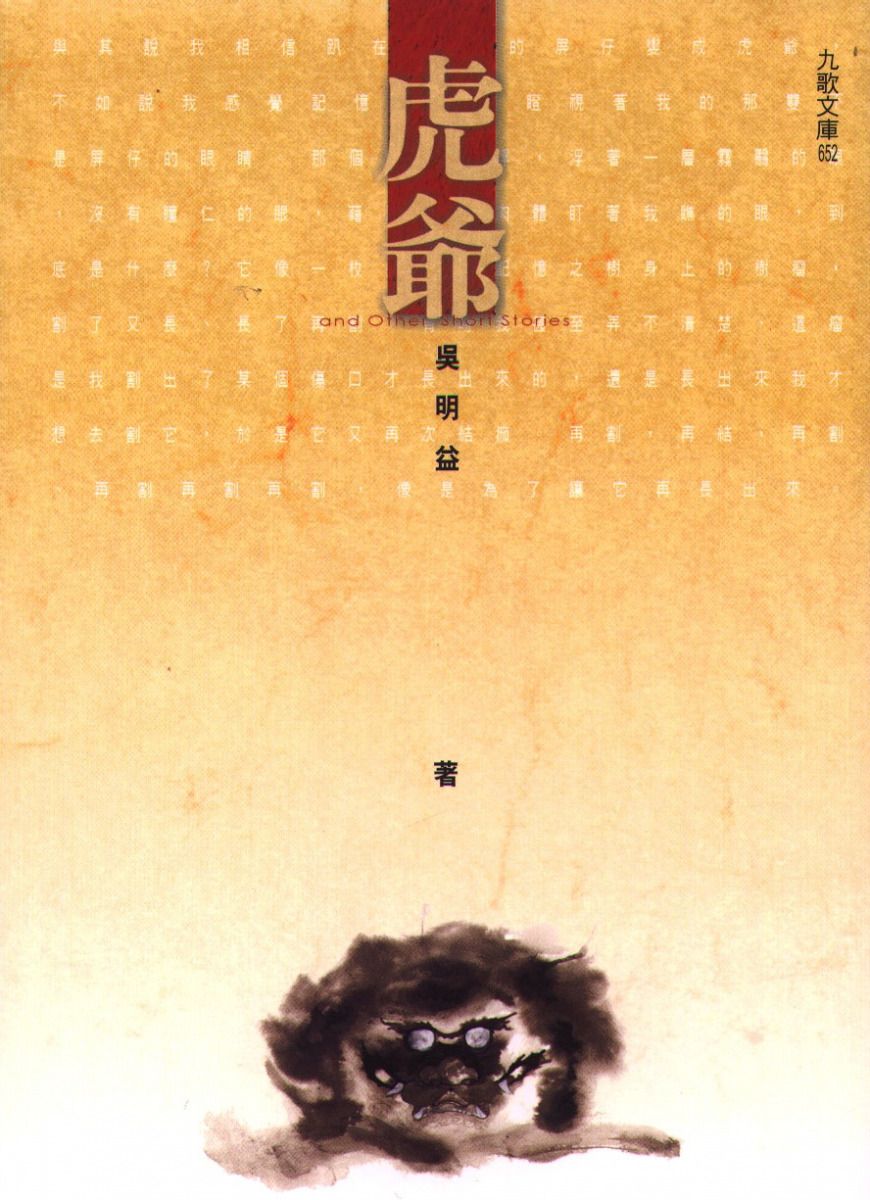
A: The experience of poor submission in the early years made me not confident in my own creation. After "Tiger Lord" won the award, I decided to stop worrying about it and go out of my own way. In the process of writing "Mis Butterfly", because there are many scientific words in the narrative, it was not optimistic. But after the "Missing Butterfly" was recognized by the Taipei Literature Award, I began to have some confidence that the problem was not my own. Since that time, I have almost read only foreign literature, and the route of ecological writing is therefore different from that of Taiwan. I chose to follow the path from abroad, and my works gradually lost traces of other Taiwanese writers, which is also reflected in "Tiger Lord". In my early novels, "Summer Will Die" and "The Compound Eyed Man" are still my favorites.
Q: "Taiwan e Literature and Art" ceased publication in 2002. Later, in 2005, Hu Changsong founded the "Taiwanese Front", which was mainly written in the Taiwanese language, and many of them were members of the "Taiwan New Local Society". Do you have any connection with this "Taiwanese Front" community? I'm curious about the connection between the two magazines.
A: Books are always received. This magazine also inspired me to use the Taiwanese model in my novels. But Song Zelai has always said that the Taipei literary circle and the southern literary circle say that I live in Taipei, so I was not able to participate in the activities. This is very touching. Literary activities are really regional.

Q: In my previous impression of the teacher, I always felt that you are not a person with a strong local atmosphere, and it seems that you do not have much criticism of ethnic politics. This interview allowed me to clarify your relationship with these two local magazines a little bit, and also let me see the alternative possibilities of local. Finally, I would like to ask you to talk about how you view the locality in your own creations?
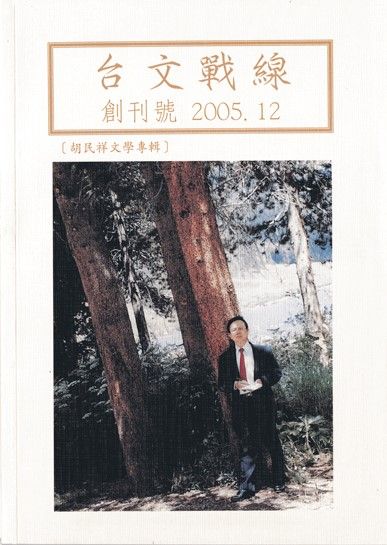
A: This semester, I invited He Jingbin to come to the school. He mentioned an interesting concept in his speech. He divides the creation of novels into two categories: one is to create the whole world first, and then to shape the characters in it. The latter is to create a character first, and then use this character to expand a new world. I think this can also be used as a metaphor for this matter: whether the political inclination is formed first, and then the novel is written;
I myself prefer the latter. When I first started writing, I was all about being a writer and had no local or political ethos. In the process of writing, I saw politics step by step, and came into contact with various spirits and doctrines in other people's literary works. Including me in the "Taiwan New Local Society", I will read their articles, especially the use of local language and local culture as writing materials, I think it makes sense, and gradually establish my own local point of view.
Especially when writing, must go through the field investigation. It may be riding a bicycle to walk three times, or walking all over the hiking trails, or walking around the island. These solid life experiences have become one of my important nutrients. I did not write about the local because of my political stance, but in real life, I was curious, observed, and finally integrated into my own works. I am very fortunate that my political inclination was formed in this way, and it was followed by such a path after another. ●( The original text was first published on the OPENBOOK official website on 2022-01-24)
Like my work?
Don't forget to support or like, so I know you are with me..
Comment…